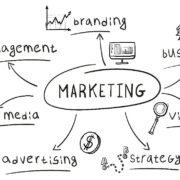In today’s digital age, having a responsive website design is no longer a luxury but a necessity. With the increasing use of mobile devices, ensuring that your website provides a seamless experience across all screen sizes is crucial for your business’s success. Here’s why responsive website design is important:
Improved User Experience
A responsive website automatically adjusts its layout and content to fit the screen size of the device being used. This ensures that visitors have a consistent and enjoyable experience, whether they’re using a smartphone, tablet, laptop, or desktop. Enhanced user experience leads to longer site visits and higher engagement rates.
Increased Mobile Traffic
With more than half of all internet traffic coming from mobile devices, having a mobile-friendly website is essential. Responsive design ensures that your site is accessible and easy to navigate on all devices, capturing a larger audience and potential customer base.
Better SEO Performance
Search engines like Google prioritize mobile-friendly websites in their search results. A responsive design improves your website’s search engine optimization (SEO) by making it easier for search engines to crawl and index your site. This can lead to higher rankings and increased visibility.
Cost-Effective
Maintaining separate desktop and mobile versions of your website can be costly and time-consuming. A responsive design eliminates the need for multiple sites, allowing you to manage one website that adapts to all devices. This reduces development and maintenance costs.
Faster Page Load Times
Responsive websites are optimized for performance, ensuring faster load times across all devices. Faster loading pages improve user experience and can reduce bounce rates, as visitors are more likely to stay on your site if it loads quickly.
Increased Conversion Rates
A seamless and consistent user experience across all devices can lead to higher conversion rates. Whether your goal is to generate leads, sell products, or encourage sign-ups, a responsive design makes it easier for visitors to complete these actions.
Futureproofing Your Website
Technology and user behaviors are constantly evolving. A responsive website design ensures that your site remains functional and aesthetically pleasing across new devices and screen sizes, future-proofing your online presence.
Responsive website design is crucial for providing an optimal user experience, improving SEO, and increasing mobile traffic and conversion rates. By investing in a responsive design, you ensure that your website meets the needs of today’s diverse digital audience.
Hyve Marketing is a full-service marketing partner, we can manage all aspects of your marketing needs: vCMO services, branding and design, website development, digital marketing, social media management, paid search, content management, photography, and video production. Contact us today for a complimentary marketing analysis of your existing brand and collateral.











